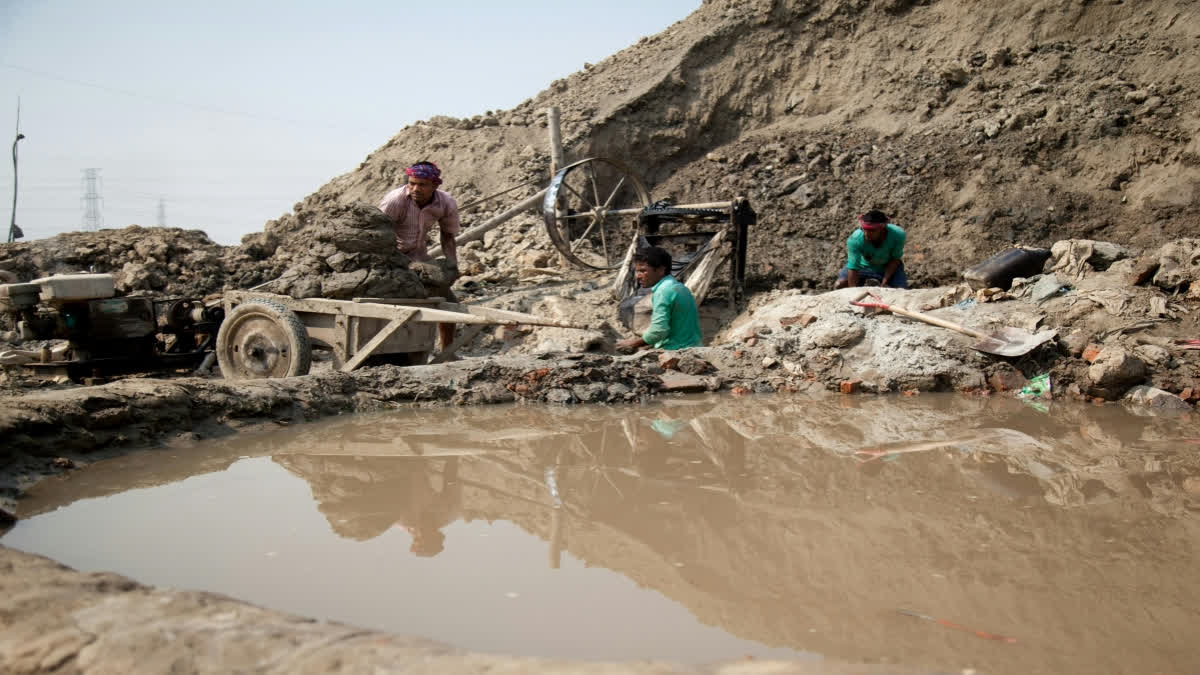New Delhi/Kathmandu: In recent statement, Sanjay Wijesekera, UNICEF Regional Director for South Asia, raised concerns about the devastating condition of children and young people affected by torrential rain, flash floods and landslides that have lashed Afghanistan, Bangladesh, India, Nepal, and Pakistan.
“Our sympathies go out to children and families who have lost loved ones due to extreme weather events in South Asia. We are also deeply concerned about the well-being and safety of over 6 million children and their families in these countries who have either lost their homes or been displaced and are struggling to survive," he added.
Speaking about the impact of flood on civil society, Wijesekera said that floods pose a risk to children’s health beyond death and injury. "They compromise safe water supplies. This increases the risk of disease and diarrhoea outbreaks and, left untreated, can lead to dehydration and malnutrition among children," Wijesekera said.
Speaking about the impact of floods on children said that such kids, over time are more likely to be underweight and stunted. "Floods damage sanitation facilities, destroy schools and roads, and disrupt children’s education. When homes are flooded, displacement can put children at risk of abuse, exploitation, and child trafficking.
Floods and subsequent landslides across Nepal have, reportedly, killed at least 109 people, including 35 children, with many more injured. At least 1,580 families have been impacted. UNICEF is on the ground working with the Government and partners to support affected children and families," he added.
In a bid to provide assistance and rescue such victims and their families, UNICEF has reached 4,540 people, including 1,810 children, with bed nets, tarpaulins for temporary shelter, buckets, mugs, water purification tablets and psychosocial support, Wijesekera stated.
Bangladesh: In Bangladesh, the lives of 6.1 million children in the northern and northeastern regions of the country have been devastated by the torrential rains and subsequent floods since May. UNICEF is working closely with the Government and our partners to provide support and relief to children and families in need.
“Record high rainfall since June has caused flash floods in Assam, India. The floods had upended the lives of half a million children and their families. Over 8,000 children were in relief camps for weeks. The monsoon season, with recurring rounds of floods, can last for a few months. UNICEF is on the ground supporting the Government of Assam, which is leading the response.
Afghanistan: The most recent flash flood in the eastern region claimed 58 lives and affected more than 1,900 families. Already tens of thousands of children are affected by multiple flash floods that swept the northern provinces of Baghlan and Badakshan and the western province of Ghor in June.
Pakistan: Heavy rains and floods in Pakistan have claimed at least 124 lives including 74 children since April. Monsoon rains are now sweeping the country putting more children’s lives and health at risk. UNICEF is working closely with the Government and our partners to step up preparedness measures.
“These erratic weather events, exacerbated by climate change, are changing the lives of children in South Asia. Afghanistan, Bangladesh, India and Pakistan are among four South Asian countries where children are at extremely high risk of the impacts of the climate crisis, according to the UNICEF Children’s Climate Risk Index.
The international body is also worried about strained financial resources that is likely to hamper responses in the future. UNICEF has requested the international community to support emergency preparedness and strengthen climate-resilience programmes for children across the region by pitching in US$9.3 million.
Read More:



